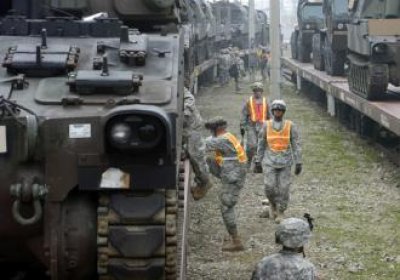N THE 60 years since the end of the Korean War, U.S. policy toward North Korea has fluctuated between the options of "containment" and "rollback."
Sometimes, the policy has shifted in the course of one presidency. Bill Clinton and George W. Bush both started out as advocates of rollback--regime change, either by military force or by provoking an internal collapse--but ended as caretakers of containment.
North Korea
As tensions rise and threat of war seems to be grow on the Korean Peninsula, most media portrayals can make it seem be entirely the fault of an out-of-control militarist North Korean regime. Missing from the story are the actions of the United States in militarising the region and repeatedly threatening the North.
The Venezuelan government released a statement accusing the United States of provoking the ongoing conflict between North and South Korea to further US interests in the region, Venezuelanalysis.com said November 26.
The statement came amid escalating tensions, as the US and South Korea carried out military exercises in disputed waters North Korea claims as its own.
How do wars begin? With a “master illusion”, according to Ralph McGehee, one of the CIA’s pioneers in “black propaganda”, known today as “news management”.
In 1983, he described to me how the CIA had faked an “incident” that became the “conclusive proof of North Vietnam’s aggression”.
This followed a claim, also fake, that North Vietnamese torpedo boats had attacked a US warship in the Gulf of Tonkin in August 1964.
On February 26, a US consular official in Hong Kong announced that Washington was ready to begin taking steps to lift financial sanctions on North Korea by resolving a dispute over Macaus Banco Delta Asia. In September 2005, the US Treasury designated BDA a primary money-laundering concern, accusing it of being a willing pawn in North Koreas alleged distribution of counterfeit US dollars and sales of illegal tobacco products.
On October 14, five days after North Korea announced that it had carried out its first nuclear weapons test, the UN Security Council unanimously adopted a resolution imposing a ban on trade with North Korea in luxury goods, some conventional armaments, and materials related to its nuclear weapons and ballistic missile programs.
On October 9, North Korea announced it had successfully carried out its first nuclear-weapons test, six days after announcing it intended to conduct such a test. The test was the culmination of nearly two years of hostility and provocation by the United States.
- Previous page
- Page 3


